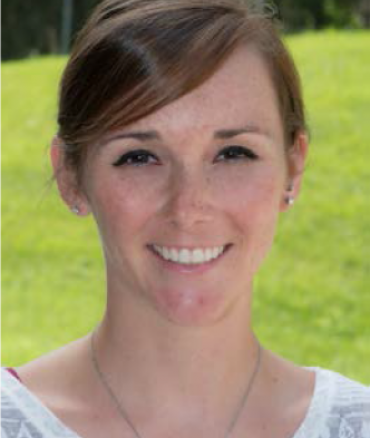Sarah
Peloquin
DVM
Leadership Role

Veterinary Laboratory Investigation and Response Network (Vet-LIRN)
Biography
Sarah Peloquin received her Bachelor of Science in biology with a secondary emphasis in English from Juniata College in 2011. She went directly from undergraduate school to veterinary school and received her Doctor of Veterinary Medicine from Virginia Maryland College of Veterinary Medicine in 2015. During veterinary school, her study emphasis was on both small animal and equine medicine. Dr. Peloquin completed VMCVM’s summer veterinary research program in 2013, where she presented a poster on her norovirus research at the NIH Veterinary Scholars Symposium.
Upon graduation from veterinary school, Dr. Peloquin worked in private practice as a small-animal veterinarian, where she had a particular interest in preventive medicine and the One Health concept. After gaining valuable clinical experience for several years, Dr. Peloquin joined FDA in 2018. Her primary focus is on case investigations of consumer complaints of potential foodborne illness.
Research
Dr. Peloquin currently holds the position of veterinary medical officer in Vet-LIRN. Vet-LIRN was established in 2011 and is FDA’s Center for Veterinary Medicine (CVM) special program. Vet-LIRN coordinates facilities, equipment, and professional expertise of government and non-government veterinary diagnostic laboratories across the country and Canada to respond to high priority chemical and microbial feed and drug contamination events.
The network provides the means for rapid response to reports of animal injury and establishes protocols to facilitate veterinary diagnostic reporting to FDA. When conducting investigations, Vet-LIRN follows specific Network Procedures for laboratories, owners and veterinarians (more on Vet-LIRN).
Dr. Peloquin works with laboratories, referring veterinarians, and pet owners to investigate cases of potential foodborne illness in animals. Each investigation is different and tailored to the presenting case. She reviews the animal’s medical records, obtains a dietary and environmental exposure history via an owner interview, and, if appropriate, requests additional diagnostic (blood, urine, and/or tissue) samples from the ill or deceased pet.
Case investigations often include various tests on collected animal feed or treat samples, and analysis of testing results. For example, requested tests may include bacteriology testing (including whole-genome sequencing on selected isolates), compositional analysis (e.g. taurine, thiamine, etc.), and chemical toxicology testing (e.g. toxic compounds, metals, etc.).
- Contact Information
- Sarah Peloquin
- +1 (240) 402-1218
- +1 (301) 210-4685
